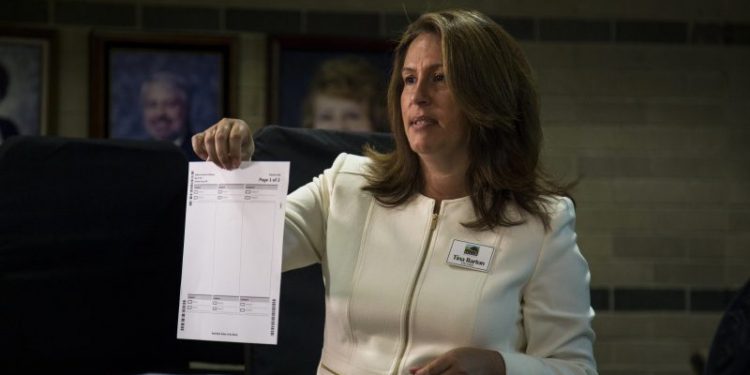In a recent turn of events concerning the aftermath of the highly contested 2020 U.S. Presidential election, a man has pleaded guilty to threatening a Michigan official. The incident sheds light on the intensity and fervor that surrounded the election and its subsequent aftermath. This development serves as a sobering reminder of the potential consequences of misinformation, political polarization, and the challenges faced by public officials in upholding the integrity of the democratic process.
The threatening behavior exhibited by the individual in question is a stark example of the dangers of political extremism and the erosion of civil discourse within society. The individual’s actions not only posed a direct threat to the safety and well-being of the Michigan official but also undermined trust in the democratic institutions that form the bedrock of our society. It is imperative for individuals to express their grievances and disagreements through peaceful and lawful means, rather than resorting to intimidation or violence to achieve their objectives.
Furthermore, this incident highlights the importance of safeguarding the independence and integrity of public officials who play a crucial role in upholding the rule of law and ensuring a fair electoral process. Threats and intimidation directed at public officials not only jeopardize their personal safety but also have a chilling effect on their ability to carry out their duties without fear or favor. It is essential for society as a whole to condemn such behavior and support efforts to protect the safety and well-being of those who serve in public office.
The guilty plea entered by the individual involved in this incident serves as a step towards accountability and justice for their actions. It sends a clear message that threats and intimidation will not be tolerated in a democratic society governed by the rule of law. However, it also serves as a wakeup call for society to address the underlying issues that give rise to such behavior, including disinformation, political polarization, and a breakdown of trust in institutions.
Moving forward, it is essential for individuals to engage in constructive dialogue, respect differing viewpoints, and uphold the principles of democracy, even in the face of contentious political issues. By fostering a culture of mutual respect, tolerance, and peaceful debate, we can work towards a more inclusive and harmonious society where the democratic process is upheld and public officials can carry out their duties free from fear or intimidation.

















